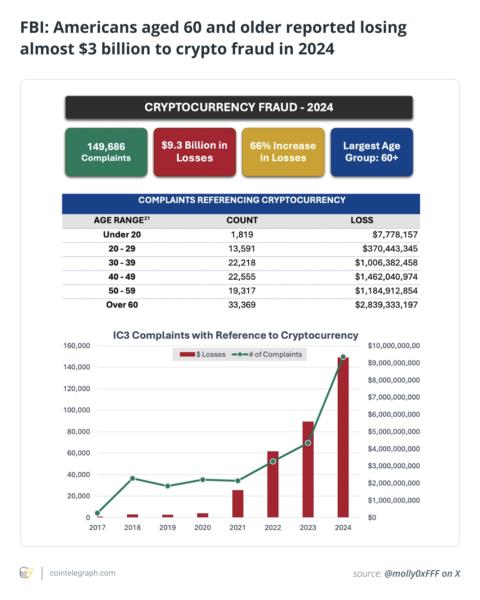Why Seniors Are Being Targeted in Crypto Scams
Scammers prey on seniors because they are perceived as financially secure, trusting, and less familiar with rapidly evolving technology. The Federal Trade Commission (FTC) reports growing losses linked to cryptocurrency investment fraud, romance scams, and government impersonation among seniors. In 2024, seniors in South Carolina’s Beaufort County alone reported over $3.1 million in crypto scam losses.
Perception of Wealth and Lower Tech Fluency
Many older adults have retirement savings or pensions, making them attractive targets. Their lower familiarity with crypto wallets, private keys, and blockchain concepts is exploited by scammers. Embarrassment often prevents victims from reporting these crimes.
Examples of Crypto Scams Targeting Older Adults
- Cambodian Scam Targeting British Pensioners: Scam compounds in Bavet, Cambodia, operated by networks linked to the Chinese mafia, have been uncovered. These operations use “pig-butchering” tactics, cultivating trust online before executing large-scale financial fraud. One victim lost over £250,000.
- Crypto ATM Scams in Minnesota: Over 5,500 incidents involving cryptocurrency kiosks led to losses exceeding $189 million in 2023, with seniors being the most vulnerable victims.
- Romance Scam: A 44-year-old woman from Staffordshire with autism fell victim to a romance scam on Instagram, losing £11,000 in cryptocurrency.
- Government Impersonation Scams: Scammers impersonate authorities, demanding crypto payments to avoid arrest or penalties.
- Cryptocurrency Investment Scam: An Ohio woman lost her life savings in a scheme that defrauded victims of about $4.9 million.
7 Key Safety Tips for Elderly Crypto Investors
- Never Send Crypto to Strangers: Legitimate organizations won’t ask for crypto randomly.
- Verify Suspicious Contacts: Call official numbers to verify requests.
- Use Trusted Wallets and Exchanges: Platforms like Coinbase and Binance.US have strong security.
- Watch for Pressure Tactics: Scammers create urgency; genuine institutions don’t.
- Enable Two-Factor Authentication (2FA): Adds a layer of protection against stolen passwords.
- Avoid Public WiFi for Crypto Transactions: Use secure networks instead.
- Discuss Large Transactions with Family: A quick call could prevent significant losses.
What to Do If Scammed
- Report to the Crypto Exchange: They might freeze the scammer’s account.
- File a Report with Law Enforcement and FTC: Use ReportFraud.ftc.gov and Chainabuse.com.
- Contact Elder Support Resources: Organizations like ElderCare Locator and Age UK provide guidance.
Is Crypto Safe for Seniors?
Cryptocurrency can be safe with proper education and safeguards. Seniors must be aware of the risks and common fraud tactics. Using reputable platforms and involving trusted family members in transactions can minimize risks. Awareness and vigilance are crucial in protecting assets in the digital age.

As cryptocurrency continues to grow, so do the scams targeting seniors. Sharing these safety tips and staying involved can help protect your loved ones from falling victim to these sophisticated schemes.


